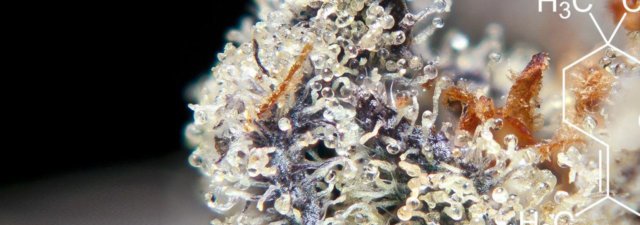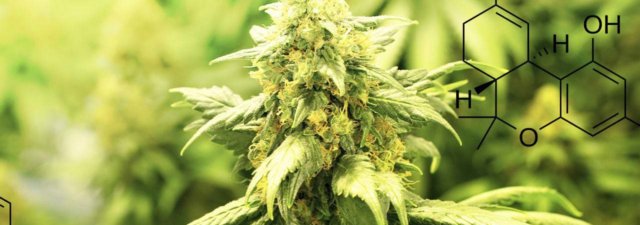Delta 8 is a naturally occurring compound found in the cannabis plant. Like its famous predecessors, CBD and delta 9, this cannabinoid has gained significant traction in the industry. Many people use delta 8 for its mild high and potential health benefits, regardless of its ambiguous legal status.
Unfortunately, cannabis contains low quantities of delta 8. So, how are manufacturers keeping up with the growing demand?
Lab-produced delta 8 has become the golden solution. Not only is it more cost-effective for manufacturers and consumers, but it’s relatively easy to produce.
What Is Delta 8?
As mentioned above, delta 8-tetrahydrocannabinol is a compound that exists in cannabis. It’s just one of many cannabinoids that include; CBD, CBG, and of course, THC.
When people think of THC, they are often referring to delta 9-tetrahydrocannabinol, the principal cannabinoid in most marijuana strains.
Delta 8 is another and less-known form of THC. Delta 9 and delta 8 are isomers of each other, meaning their chemical structure is very similar. However, delta 8 interacts with the body in a slightly different way and produces a less intoxicating high.
It’s worth noting that delta 8 THC products exist in a legal grey area. On both a federal and state level, the compound is largely unmentioned in legislation, confusing many would-be customers.
Making matters even more perplexing is that delta 8 can be produced from industrial hemp. In the United States, the 2018 farm bill removed hemp and its derivatives from the list of Schedule I substances.
Despite these complications, manufacturers have continued to produce delta 8 products, and consumers have continued to buy them. But how is delta 8 made, and is it safe?
How Is Delta 8 THC Made in the Lab?
Extracting delta 8 from raw hemp material is costly and time-consuming. Fortunately, manufacturers have found an alternative way to produce the compound; cannabinoid conversion.

All cannabinoids evolve from CBGA (cannabigerolic acid); some people even refer to it as “mother cannabinoid”. Over time, CBGA naturally converts into a specific cannabinoid such as CBD or CBG. In nature, this process is affected by the environment, plant genetics, and more, which is why some cannabinoids are more prominent than others.
In a lab setting, manufacturers can control these variables and manipulate CBGA’s conversion process, producing their desired compound. Unbeknown to most, this already happens with many of today’s more niche compounds, such as CBG. These products are synthetic.
Of course, some people may only want naturally-derived compounds. But because delta 8 occurs in such small quantities, it’s not profitable for companies to obtain it in this way.
As both CBD and delta 9 are so prevalent in cannabis, it’s typical for manufacturers to use these two compounds in the conversion process. So, how is delta 8 THC really made?
Getting Delta 8 Through a Cannabinoid Conversion
Cannabinoid conversion is surprisingly simple. Here’s a commonly used process for converting CBD to delta 8.
- Create a CBD isolate: Before the conversion can begin, the hemp extract needs to be purified into 98% CBD. The extract undergoes an extensive filtration process, which removes all other cannabinoids and terpenes.
- Combine with a solvent and acid: Manufacturers add a non-polar solvent, such as heptane, to the mixture. Once fully dissolved, they add an acid reagent in order to produce the chemical reaction and cannabinoid conversion. The solution is then continually stirred for at least 3 hours; a stirring plate is often used. Depending on the formula, the solution is either kept at room temperature or heated.
- Neutralize and clean the solution: Producing delta 8 can create several unwanted byproducts, such as solvent and acid residue. So cleaning and filtering the solution is essential. It’s common to use a distilled water and sodium bicarbonate wash and sometimes a rotary evaporator.
- Test the final product: The most crucial stage of manufacturing is testing. Good quality products are tested using methods such as high-performance liquid chromatography (HPLC). This method allows companies to isolate each compound and check that it contains no unwanted chemicals.
The Problem With Converting CBD Into Delta 8
While creating lab-produced delta 8 is relatively simple, it involves combining lots of potentially dangerous chemicals. Because of this, only licensed chemists and experienced manufacturers should manipulate CBD into delta 8.
Unfortunately, many low-quality “at-home” kits and formulas are on the market. By using them, consumers run the risk of handling and ingesting harmful acid and solvent residue.
For those interested in trying delta 8, buying from reputable and high-quality brands is an important decision.
Delta 8 THC Product Options
In general, hemp-derived delta 8 products are preferred, especially as marijuana is still illegal in many states in the US. Luckily, this has become the industry standard, and sellers should be transparent about this.

Delta 8 products come in many different shapes and sizes, and choosing between these product types is largely a personal preference. Some of the most popular are:
Many people enjoy delta 8’s mild effects and believe it encourages relaxation and alleviates everyday stress. However, delta 8’s intoxicating effects can vary from person to person. For instance, someone who regularly consumes THC-rich cannabis strains may find it less potent than someone who’s never consumed THC before.
Additionally, personal variables such as metabolism, weight, and diet can impact the intensity of a high.
To date, very little research has been conducted on this cannabinoid. Therefore, consumers should be careful when trying delta 8 for the first time.
Final Thoughts on How to Make Delta 8
It’s rare to find naturally-derived delta 8 products. While the cannabinoid does exist in cannabis, its limited concentration makes it an unpopular method of extraction.
Instead, most companies make delta 8 products with hemp-derived cannabinoids, like CBD, and convert them into the compound. Using a simple lab process like cannabinoid conversion has made delta 8 products affordable for many consumers.
It’s worth remembering that delta 8 products are still new to the cannabis market. Extraction, conversion, and testing techniques are constantly developing and improving. And, much like the cannabis industry as a whole, the lack of regulation means that poorly-made products do exist. Consumers should be extra vigilant about quality when buying delta 8 products.

![Can CBD Oil Be Taken with Ibuprofen? [What the Science Says]](https://wayofleaf.com/wp-content/uploads/2020/08/wol_can-cbd-oil-be-taken-with-ibuprofen-1-640x225.jpg)
![What Is CBL? [Cannabicyclol Explained]](https://wayofleaf.com/wp-content/uploads/2019/12/mj_what_is_cbl_1920-min-640x225.jpg)


![Does Cannabis Affect Women Differently to Men? [ANSWERED]](https://wayofleaf.com/wp-content/uploads/2018/09/mj_does-marijuana-affect-women-differently-to-men-answered-640x225.jpg)



![Why CBD Oil Won’t Work for Everyone [Answered]](https://wayofleaf.com/wp-content/uploads/2018/03/wol_1920x450-67-640x225.jpg)

![What Is Geraniol? [Cannabis Terpene Guide]](https://wayofleaf.com/wp-content/uploads/2020/10/wol_what-is-geraniol-640x225.jpg)
